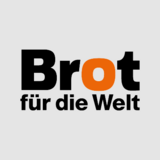Every year Brot für die Welt supports German youths within the ages of 18 to 28, to spend one year of voluntary service abroad in countries of the Global South.After this year these volunteers return to Germany with lots of experiences and are once again encouraged by Brot für die Welt to participate in development initiatives and contribute to global education. The organization therefore mobilizes returnees to participate in a “train the trainer”-programme, that enables them to become actors in Global Learning in Germany. The programme contains several weekend seminars and the realisation of an own project. From the 20th to 22nd of May 2016 Brot für die Welt organized a seminar with 14 young returnees who had spent at least one year in Indonesia, Togo, South Africa, Ghana, Costa Rica, Nicaragua and India. The topic of the seminar was “Searching sustainable lifestyles”. The seminar was conducted by my team colleagues Sabine von Bargen- Ostermann and Johannes Küstner.
We discussed the theoretical importance of sufficient lifestyles for a transition to sustainable societies as well as the connection between lifestyle choices and political action for change. At the seminar the participants had the opportunity to share experiences on the best lifestyle practices they had observed from the countries abroad. I had the opportunity to share my insight on lifestyles in Cameroon and relate this insight to the german discussion about sustainable lifestyle choices.There were also open sessions on personal life with a focus on family and career development and sessions for personal auto-perception.
The evenings were entertaining with some fun filled regional and international games and stories. The environment was very nice and the participants had the opportunity to go for walks in their spare time in the woods, reflect, swim or just spend time together to enjoy nature while having conversations.At the end of the seminar the returnees expressed satisfaction on the relevance of the seminar and made decisions to improve their lifestyle by an action. Some of these actions include; creating gardens, buying more organic products, reducing the consumption of meat, using more ecofriendly transport systems such as bicycles etc.
What about you? You can take a decision to improve your lifestyle today and to protect the earth's resources for future generations. Share in the comments section below: How big is your ecological footprint? (www.fussabdruck.de) What measures do you take to improve your lifestyle?





